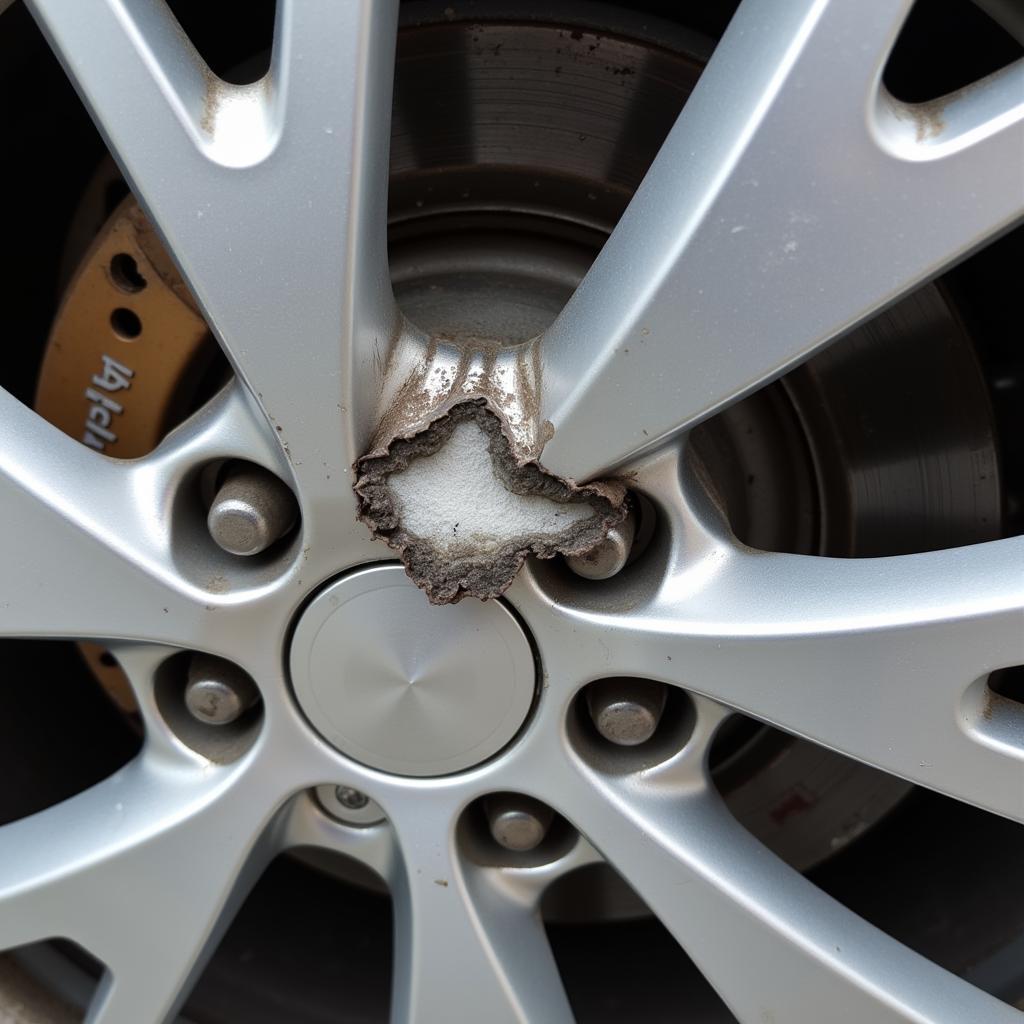Experiencing car deceleration exhaust problems with your Subaru Legacy 95? You’re not alone. This issue can be frustrating, but understanding the potential causes and solutions can help you get back on the road quickly and smoothly.
Understanding Car Deceleration Exhaust Problems in a Subaru Legacy 95
Deceleration exhaust problems often manifest as unusual noises, vibrations, or even performance issues. When you let off the gas pedal in your ’95 Legacy, a properly functioning exhaust system should quietly manage the escaping gases. However, issues like exhaust leaks, clogged catalytic converters, or faulty oxygen sensors can disrupt this process, leading to the problems you’re experiencing.
Common Causes of Car Deceleration Exhaust Problems: Subaru Legacy 95
Several factors contribute to car deceleration exhaust problems in a 1995 Subaru Legacy. Here’s a breakdown of the most common culprits:
-
Exhaust Leaks: A hole or crack anywhere in the exhaust system, from the manifold to the tailpipe, can cause noisy deceleration, reduced engine performance, and even dangerous fumes entering the cabin.
-
Clogged Catalytic Converter: The catalytic converter plays a crucial role in reducing harmful emissions. A clogged converter restricts exhaust flow, leading to sluggish performance, unusual noises during deceleration, and potentially overheating.
-
Faulty Oxygen Sensors: Oxygen sensors monitor the exhaust gases and provide feedback to the engine control unit (ECU). A malfunctioning sensor can disrupt the air-fuel mixture, causing various issues, including deceleration problems.
-
Vacuum Leaks: While not directly related to the exhaust system, vacuum leaks can affect engine performance and contribute to deceleration issues. A leak can disrupt the intake system’s pressure, leading to a rough idle and poor acceleration/deceleration.
Diagnosing Your Subaru Legacy 95’s Exhaust Issue
Pinpointing the exact cause of your car deceleration exhaust problems requires a systematic approach. Here’s how to troubleshoot:
-
Listen Carefully: Pay close attention to the type of noise during deceleration. A rumbling sound might suggest an exhaust leak, while a hissing noise could indicate a vacuum leak.
-
Inspect the Exhaust System: Visually examine the exhaust system for any obvious signs of damage, like rust, holes, or cracks.
-
Check for Vacuum Leaks: Use a vacuum gauge or a simple DIY method with a spray bottle of soapy water to locate potential vacuum leaks.
-
Consult a Professional: If you’re unsure about the diagnosis, it’s always best to consult a qualified mechanic specializing in Subaru vehicles. They have the tools and expertise to accurately diagnose and fix the problem.
Fixing Car Deceleration Exhaust Problems
Once you’ve identified the cause, you can take the necessary steps to fix the issue. This might involve:
-
Repairing or Replacing Exhaust Components: A muffler shop can weld small holes or replace damaged sections of the exhaust system.
-
Replacing the Catalytic Converter: A clogged or failing catalytic converter typically needs replacement.
-
Replacing Oxygen Sensors: Faulty oxygen sensors should be replaced to restore proper engine function.
-
Addressing Vacuum Leaks: Fixing vacuum leaks often involves replacing damaged hoses or gaskets.
Preventing Future Exhaust Issues
Regular maintenance is crucial for preventing future car deceleration exhaust problems. Here are some preventative measures:
-
Regular Inspections: Inspect your exhaust system regularly for signs of wear and tear.
-
Address Rust Promptly: Rust can quickly weaken exhaust components, so address any rust spots as soon as you notice them.
-
Maintain Proper Engine Tuning: A well-tuned engine minimizes strain on the exhaust system.
“Regular maintenance is your best defense against exhaust problems,” says Robert Johnson, a veteran automotive technician with over 25 years of experience specializing in Subaru models. “Catching issues early can save you a lot of headaches and money down the road.”
Conclusion
Car deceleration exhaust problems in your Subaru Legacy 95 can be a nuisance, but by understanding the potential causes and solutions, you can tackle them effectively. Regular maintenance and prompt attention to any unusual noises or performance issues can help keep your Legacy running smoothly for years to come. Need further assistance? Contact AutoTipPro at +1 (641) 206-8880 or visit our office at 500 N St Mary’s St, San Antonio, TX 78205, United States. We’re here to help!






Leave a Reply